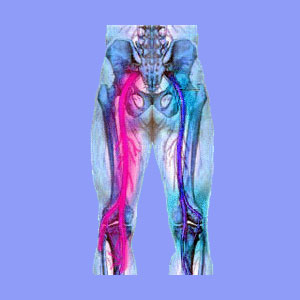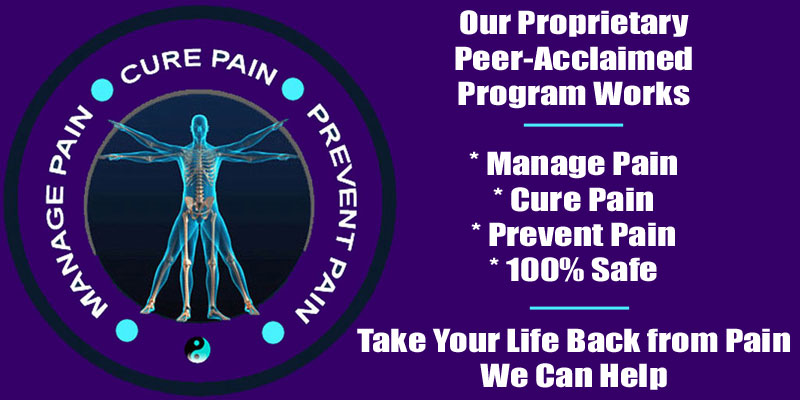
Working with sciatica is a wide-awake nightmare for any patient who needs to push themselves to function in the workplace, while enduring the misery of chronic sciatic nerve pain. Working is generally not something most people can choose to stop doing, just because they have pain. Therefore, these poor patients must force their already tired and stressed bodies to perform, even when they are suffering greatly from acute back and leg pain.
This article will detail what it is like to have to work with neuropathy, as well as how work may actually play a role in the cause, escalation or extension of symptoms.
Challenges of Working with Sciatica
No matter what you do for a living, I bet your work exacerbates your sciatica symptoms. If you sit at your job, then sitting becomes agonizing. If you must work hard labor, then your back is torn and abused daily and you must drag yourself home every day, barely able to function. If you stand all day, then your legs are simply wasted by the time you get home and that sharp pain in your lower back remains, long after you can finally relax in the evening.
I know well what it is like to work in desperate pain. In fact, I was working 4 jobs during the height of my own worst back pain struggle. I still work 7 days a week, even when I don’t feel great.
Not Working Because of Pain
If you choose not to work, you will also suffer pain. You think it might be a good idea to give your back a rest and your doctor might have even recommended taking some time off work. If you are lucky, you might get to use some sick days or some vacation time to make up the losses. However, this time runs out fast and your pain remains.
If you choose to continue staying home, you still can’t find comfort and you are becoming increasingly stressed over your financial losses and the effects they might have on your family. Times are tough and your sciatica is making it harder on everyone.
Not working with sciatica always turns out to be a poor solution.
Working with Sciatica Facts
Here are some interesting work and sciatica-related facts:
Workers who have severe back pain, but do not seek medical attention recover faster and better than workers who seek treatment. This holds true regardless of the known or theorized source of symptoms.
Lower back pain is the most common reason for any worker, in any profession, to miss a day of employment. Back pain costs every industry countless billions each year.
Work-related stress is a major contributor to psychosomatic sciatica syndromes. In fact, a great number of people have pain which is directly related to work stress, be it sciatica, carpal tunnel, headaches, stomach problems or other concerns.
Workers who do not enjoy their jobs are 6 times more likely to suffer career influencing back pain than workers who love what they do.
Workers who do not like their jobs are over 20 times more likely to seek disability for chronic pain conditions rather than return to work.
Sciatica in the Workplace
Working seems like an inevitability of life. We are forced into a mold by society and we have little choice but to go out and provide for ourselves and our families. While this is normal, it still creates tremendous stress in some individuals and can contribute greatly to the vast amount of repressed and conscious psychoemotional emotional issues which are the foundation for many chronic sciatica concerns. Likewise, some people have jobs which feature tasks which exacerbate anatomical spinal or nonspinal issues and bring on symptoms. These people often have to make adjustments in their work practices or find new vocations altogether.
In order to best sort out the possibility that structural issues are being irritated by work activities, talk to your physical and occupational therapists.
During my decades of sciatica pain torture, I worked through my good times and bad. I almost never missed work, despite the high cost I paid for it when my pain was severe. I always coped with the symptoms and put the burden on myself, rather than shifting the load to fall on my employer’s shoulders.
Later on, I discovered that it was this very attitude which helped contribute to my pain. My actual personality type made me predisposed to suffer from emotionally repressed issues because of my goodist nature in wanting to always do the right thing, despite the effects on me. My professions have also been very physical jobs. I have taught martial arts and worked as a professional investigator. Both of these tasks can be hard on the body.
Pushing yourself too hard is a sure recipe for disaster and this is another lesson which has been painfully taught to me over the years. Well, I have lived and I have learned. Will you learn or simply keep suffering?
Remember, no job is worth your health. Do whatever you can to find relief, but be sure to do something. Do not just maintain the status quo of agony, while possibly setting yourself up for a horrible downfall, either physically or psychologically.





